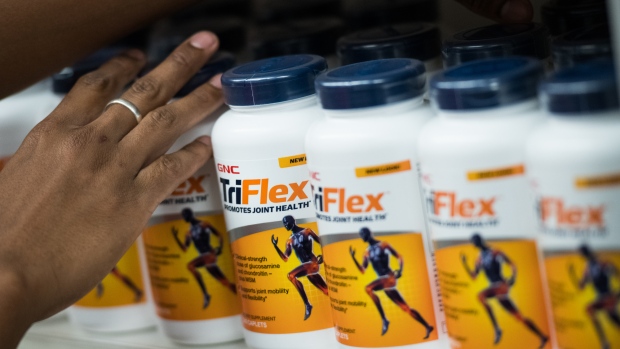Oct 22, 2019
GNC’s Chinese Backer to Consider Buyout of Vitamin Retailer
, Bloomberg News

(Bloomberg) -- GNC Holdings Inc.’s Chinese investor, Harbin Pharmaceutical Group Co., is considering a potential bid to take the U.S. vitamin and supplement retailer private, people with knowledge of the matter said.
The Chinese company has been speaking with potential advisers about an offer for GNC, the people said, asking not to be identified because the information is private. Shares of GNC have lost more than half their value over the last year, giving the company a market capitalization of $176 million. It had nearly $900 million of debt at the end of June, according to a recent investor presentation.
Harbin Pharmaceutical is already an existing investor in GNC, agreeing last year to buy $300 million of convertible preferred shares that would make it the U.S. firm’s biggest shareholder if they’re all exercised. The two companies also recently started a Chinese e-commerce joint venture.
Any transaction would mark a rare U.S. acquisition by a Chinese company as ongoing trade tensions slow cross-border dealmaking. GNC has been in talks with creditors about ways to rework its debt load, Bloomberg News reported last month.
Regulatory Risks
Harbin Pharmaceutical, known for its Hayao medicine brand, is in the early stages of weighing an offer and hasn’t made a final decision on whether to proceed, the people said. It is studying risks including the potential for regulatory scrutiny and the possibility that GNC’s business will further deteriorate, as well as the debt load it would need to take on, according to the people.
GNC has been considering a range of refinancing options and aims to complete the process by year-end, according to one person. Representatives for Harbin Pharmaceutical didn’t immediately respond to requests for comment, while a representative for GNC declined to comment.
Shares of Harbin Pharmaceutical have climbed 7% in the past 12 months, giving it a market value of about 9.6 billion yuan ($1.3 billion).
GNC, founded in the 1930s, sells health and nutrition products in more than 4,800 stores across the U.S., as well as through franchise operations in 46 international markets, according to its website. The retailer plans to close as many as 900 stores by end of next year in the U.S., Chief Executive Officer Ken Martindale said on a July 22 investors call.
The U.S. firm had held discussions with several Chinese suitors about a sale of the entire company in 2016, though the talks stalled in 2016 after they failed to agree on a deal structure, people familiar with the matter said at the time.
--With assistance from Jinshan Hong, Drew Armstrong and Katherine Doherty.
To contact the reporters on this story: Vinicy Chan in New York at vchan91@bloomberg.net;Cathy Chan in Hong Kong at kchan14@bloomberg.net;Ed Hammond in New York at ehammond12@bloomberg.net
To contact the editors responsible for this story: Fion Li at fli59@bloomberg.net, ;Liana Baker at lbaker75@bloomberg.net, ;Jun Luo at jluo6@bloomberg.net, Ben Scent
©2019 Bloomberg L.P.





